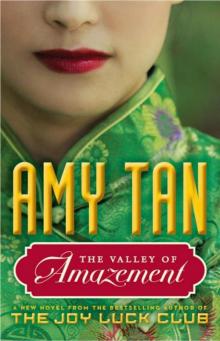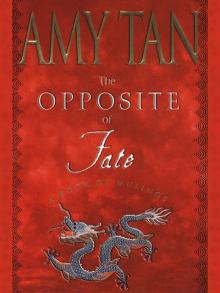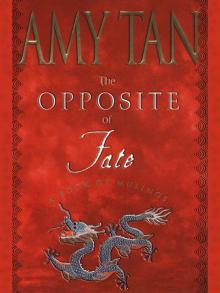Saving Fish From Drowning Read online
Page 7
“You must inform your clients, gently but firmly,” he often told his disciples at lectures. “Dogs are not people in fur coats. No, indeed. They don’t speak in the future tense. They live in the moment. And unlike you and me, they’ll drink from a toilet. Lucky for us, they are perfect specimens of how operant conditioning and positive reinforcement work, and beautifully so if only we learn how to apply the principles properly. Their human handlers have got to be absolutely objective about what motivates their poochies—so quash their tendency to ascribe Muggum-wuggum’s barking, growling, and counter-surfing to anthropomorphic motives such as pride, revenge, sneakiness, or betrayal. That’s how we speak of our ex-wives, former lovers, and politicians. Remember that Canis lupus familiaris is driven by his own jollies, which are usually harmless to others but can be detrimental to white carpets and Italian shoes. The fact is, dogs mark territory and they masticate. And if dogs resemble Homo erectus in any respect, it is in those traits of the poorly socialized male. Both do what pleases them: they scratch their balls, sleep on the sofa, and sniff any crotch that comes their way. And you, the brilliant dog trainer, must train the owners—that’s right, those barely evolved humans holding those rolled-up newspapers in hand like cavemen’s cudgels—you must train the humans to show the dogs what lucky canines prefer to do other than nip and yowl, or use the leather sofa as a chew toy. Ah! ‘Prefer’ is the operative word, isn’t it? . . .”
Harry Bailley believed in training people early, before they could inflict any lasting damage upon the wee and impressionable pooches. “Puppy classes!” he would exhort on his television show. “A great equalizer, the perfect socializer, far better than those bore-and-snore book clubs that are all the rage on the other channel. Doggie classes, what a fantastic way for singles to meet. Strong, sensitive men. Woof! Loyal, long-limbed ladies. Woof-woof! And all those sweet, slurpy puppies. Picture their tails wagging—the doggies, you scalawags.” And as his TV clients and their dogs tangoed to “Sit,” “Down,” “Stay,” and “Come,” Harry would ham it up to make everyone feel successful, proud, and continually motivated. “Lure your dog. That’s right, dangle that cheese bit above his nose, now back until he sits. Steady, steady . . . Yessss! Bingo! Give him the jackpot right away. He’s got it. You’ve got it. Only five point two seconds that time. Good Lord, you two are fast! What a fantastic team!” The dogs panted. The humans, too.
Harry revolutionized dog training. Everyone said so. In the early days, he went so far as to believe his notions of dog behavior could be applied to anything, from toilet training to international politics. He said so in seminars: “Which works faster: beating and humiliating a dictatorship, or luring it to follow a better and more rewarding model? If we call upon the country only to pummel it for being bad, how likely is it to come seeking our humanitarian advice? Isn’t it utterly obvious?” And then Harry would dangle a hundred-dollar bill and bob it up and down so that people in the front row would nod dutifully in agreement. He was rather cocky in those days.
In more recent years, Harry had become less focused on the bad behavior of dog owners and governments and more on his own virility, which he feared might share the fate of endangered species—going, going, gone. He still had his hairline, though it had grayed on the sides—excellent credentials for authority. His physique was still trim; expensive tailored suits helped give him that effect. The damn trouble was, he had an enlarged prostate, the typical benign prostatic hyperplasia that afflicts many men, more annoying than harmful. But by God, Harry would moan, it shouldn’t strangle a man’s best friend before he’s even turned fifty! He was troubled that he had to urinate frequently, and the more he strained, the more he issued forth only driblets, much to his shame at public urinals. He was educated enough to know that the force of urinary flow—or lack thereof—was not a correlation of sexual prowess. Yet he feared that his personal plumbing, which had once spurted those two essential fluids as forcefully as the nozzle on his garden hose, might soon become choked off like a water-saving shower head, and unsatisfying not just to him but to the woman of the moment as well.
He searched the Internet for information that might indicate the prognosis of his sex life should his condition worsen. Ejaculatory backfiring was one worry. Could women really tell? He found a web-site on prostate problems, with messages from men who shared the same annoying condition. Several posters suggested that daily ejaculations might slow down the hyperplastic activity and keep the pelvic muscles better toned. The message board was also littered with invitations to join porn sites where sufferers could find instant relief for one flat rate. Great, Harry thought, the answer is to masturbate like a kid with a magazine as your one-night stand. No, thank you. He grew more determined to find a lovemate—one would do nicely in this day and age of protected sex and privacy angst—one incredibly wonderful woman he could have and hold, who would understand when parts of him sputtered and gave out, for now or forever. Harry was desperate for love and sex, and for the first time, in that order.
Lovely, sleek Marlena Chu had boarded the bus to Lijiang ahead of him and had taken a window seat, while her daughter, Esmé, raced to the aft of the bus and flopped lengthwise on the long bench. Ye gods, an opportunity. Harry pretended to pass Marlena before reversing to inquire quietly whether she might have any aspirin. Women adore helping creatures in pain; Harry knew that, as well as the fact that ladies always carry remedies for menstrual cramps and headaches. As Marlena began to dig through her purse, he sat down next to her and waited puppylike for his treat.
Although Harry had seen Marlena at many social gatherings in San Francisco, here in this mountain valley in China, she looked positively exotic. Why was that? Why had he not sought her out before? Could it really be that he had overlooked her because she was past a certain dewy-skinned age? But look at her now. Everything about her was smooth and elegant: her hair, her face, her clothes, and especially her movements and gestures. When applying insect repellent, she looked like a goddess. Such grace, such style. She wore a simple black sleeveless sheath and a large colorful pleated scarf, wound and wrapped, so that it resembled a sarong, an origami shawl, a sari, the multiple effects waiting to be undone by a breeze, a whisper of consent in the night.
Naturally, he worried that his friend Moff might have similar thoughts. The two men often did when it came to women. He glanced over at Moff, who was staring right this moment at Heidi as she reached into the overhead rack to pull out a neck pillow from her rucksack. Moff’s son, Rupert, who had been playing with a deck of cards, also stared openly at the young woman’s breasts. Harry had noticed that Moff had given Marlena a number of second glances, his eyes drifting down the length of her figure, lingering on her buttocks. By sitting next to her, Harry hoped this territorial hint would find its way into his friend’s brain, stir some cognition where impulsive behavior and primitive reflexes now resided. Moff could be thickheaded exactly when you didn’t want him to be.
There was that time, Harry recalled, when they were both at a café in Stinson Beach, and Harry had clearly indicated his interest in the café’s owner by saying to Moff: “What gorgeous peepers. Huge hazel irises, fourteen millimeters in diameter, I reckon.” Harry had a fixation about eyes. And Moff had answered, “Really? Hadn’t noticed.” The next day Harry was back at the café and ordered eggs sunny-side up. The woman was friendly, but it was hard to move in more closely; she was like those hand-shy dogs in shelters that had been beaten by previous owners. But he loved the challenge of transforming untrusting creatures into licking maniacs. Take it slowly, he cautioned himself. No sudden moves.
The next day, she wasn’t there. He learned later that Moff had wooed the pants off her by asking if he could drop her somewhere on his refurbished Harley. She rode with him down the coast to Monterey, shedding almost every stitch of clothing and flinging it into the Pacific. After two rapturous months, Moff had to break things off because of “serious differences in expectations.” She responded by spray-painting his moto
rcycle pink. Harry was more upset than Moff about this report. Blast it! Moff had turned her into a Cerberus hellhound who wanted only to lunge and kill anyone with a penis. He had utterly ruined her as far as future dating was concerned. Adding insult to injury, Moff had also said to him, “Those hazel irises you admired so much? Colored contact lenses, my friend.”
What the devil did women see in Moff? Harry tried to imagine him from a female’s perspective. . . . He was taller than average (meaning, taller than Harry, who was five-feet-ten), had a passable build, lanky and no flab. But he was a complete washout when it came to proper clothes. His boyhood pal wore the same jungle-safari shirts and baggy short pants no matter what the season or event. And the shoes, well, they were more working-class boots, greased with dirt and flecked with paint. His hands were callused, like an ordinary laborer’s. He wasn’t the sort to buy a woman flowers or speak to her in endearments, not like Harry. And Moff’s hair was a mess, long bushy locks gathered into a ponytail, and a receding hairline accentuating a massive forehead. The latter made him appear super-brainy, which he was, Harry acknowledged, though he also knew that Moff had been kicked out of school for truancy and smoking pot by the time he was sixteen, and thus was forced to become an autodidact.
What knowledge Moff possessed had come from reading, roaming the streets, and taking odd jobs in his youth, many of them in dockyards where he did inventory for import-export companies, the rest in backyards in Miami and Los Angeles, where he pruned hedges and cleaned pools. His interest in bamboo began in the 1970s, when he grew walls of it to camouflage his marijuana plants. Keen to make his cannabis as powerful per puff as possible, he devoured books on horticulture, particularly those related to genetic enhancement. Later, bamboo cultivation itself superseded his nefarious grass-growing interests—and why wouldn’t it, when bamboo regenerated so quickly, just like marijuana, but without the legal hassles? And thus he made the 1980s transition to capitalist farmer, shipping containers of “live product,” as he called it, to the lobbies of new office buildings, remodeled airports, and luxury hotels around the world. (Harry didn’t know at the time that Moff and Marlena had quite a few clients in common. Then again, neither did Moff.)
All right, so Moff had an unconventional business, Harry granted him that. And by calling himself a “plantation owner,” Moff made himself highly attractive to women with romantic illusions. They probably thought the plantation was idyllic, like the set for a dinosaur movie, and indeed, it had been used for that purpose on several occasions. But Moff himself had not a whit of romance in his brain. His plantation was intentionally situated near the Laguna Seca Raceway in Salinas, and that was where he took his dates—a factor in a man’s favor if a woman’s idea of a good time was smelling crankcase oil and getting her eardrums blown out by the rpms of Le Mans prototypes. Inexplicably, there was no shortage of women in that category.
Perhaps, Harry thought, he should just be direct with Moff, inform him straightaway that he was interested in Marlena, strongly so. “Old chum, I hope you don’t mind, but you know . . .” and Harry would indicate with a nod that the lady in favor was Marlena. He imagined Moff would reply with a “Ho-ho,” then clap his hand firmly on Harry’s back, thus sealing their understanding. Marlena, while unaware of the pact, would subconsciously sense the respect these two men shared and never violate it by bedding both of them.
“Have you noticed the trees along the roadside?” Marlena now said to him. Harry peered out the window and in doing so leaned his chest against her arm, his cheek hovering close to hers. The tree trunks were painted white halfway up.
“It’s been that way mile after mile,” she continued, “like a white picket fence.”
My God, Harry thought, her voice was liquid amber, light and mysterious. “An insecticide,” he concluded.
She frowned. “Really? I thought it was so the drivers could see the road at night.”
He backpedaled: “Brilliant deduction. Dual-purpose white. Kills bugs, saves lives.”
“Watching the trees can be hypnotic, though,” she added. “Not great for drivers.”
“Is that why I’m feeling dazed?” He stared into her eyes.
Out of protective instinct, she did a quick deflect. “Probably jet lag.”
He wished he could see her eyes more clearly, but the light was too dim. He could tell how responsive a woman was from the way her pupils reacted. If they pulsed into superdilation, that meant she was open to flirtation, and sex within hours if not minutes was a strong possibility.
Marlena smiled, then yawned. “I can’t wait to fall into my bed.”
“Funny,” Harry quipped, “I’m looking forward to the exact same thing.” He gave his best version of a puppy panting.
She raised one eyebrow, acknowledging the naughty ambiguity of his response. He grinned, and she returned a small smile that was neither rebuke nor acceptance. “The trees,” she ventured again, her voice a little higher, “are they poplars? It’s hard to see the shape of the leaves. Most of them have already fallen off.”
Cheek to cheek, they stared into the darkness, at the blur of whitened trees.
TO HELP MY FRIENDS find the right sensibilities for viewing Lijiang, I included in their itinerary the translated sentiments of a local amateur archivist: “Throughout the last eight centuries, the frequent earthquakes of this region, some measuring to a greatness of 7.0, have rattled the teeth of its citizens, and shaken a few foodstuffs from the cupboards, but not our determination to stay. Because of its beauty, Lijiang is a place no one can ever leave willingly. But if you must go, by peaceful old age or by tourist jet, look down from the sky, and you will notice that Lijiang resembles an ancient ink stone used for centuries to write poetry celebrating its antiquities and self-replenishing virtues.”
This tribute to his hometown was quaint, and perfectly expressed. But of course, most of my friends did not bother to read it.
As I had planned, the group checked into the best hotel Lijiang had to offer. The Glorious View Villa was in the newer, rebuilt section of town, directly across the street from the historic old town with its ramble of lanes, small canals, and aging courtyard homes with their snaky gray tiles and sun-dried mud bricks. The newer hotels of Lijiang were bland but provided one essential tourist attraction: private toilets and baths. The Glorious View had other markings of luxury: a marble-floored lobby lined with uniformed staff, who had received extensive training in greeting customers with happy faces and cheerful phrases: “Welcome!” “You’re welcome!” “You’re most welcome!”
The rooms themselves were small, dull, and dimly lit by energy-saving fluorescent bulbs. The twin beds, sheets, and towels were newer and cleaner than those of any other hotel in the city. The carpets had only a few watermelon stains. A small amount of toilet paper was doled out each day, adequate if one had intestinal fortitude. More was available on request or by theft from the supplies cart in the hall that was monitored by a surveillance camera. The Glorious View Villa was, in fact, the best hotel in the whole of the Naxi Autonomous Region, but for a group used to staying at a chain no worse than the Four Seasons, “best” should have been thought of as a restricted comparative term, not a fixed standard of excellence.
This distinction was lost on Roxanne and Dwight, who tried the knobs on the bedside consoles, the ubiquitous fixture of Chinese hotels. They duly clicked to appropriate notches marked “Lights,” “TV,” “Stereo.” The lights remained lit, the television stayed black, the radio silent. “How can this be a first-class hotel?” Roxanne groused. “This place is the pits.”
Because Lijiang had been described as “historic,” “remote,” and “near the Tibetan foothills,” Roxanne had imagined they would be staying in a nomadic tent-style villa. The floors should have been beaten earth covered with yak hides, the walls adorned with colorful tapestries. She wanted saddled and snorting camels waiting outside, in lieu of battle-scarred taxis and tens of thousands of tourists, most of whom were Chinese. But it was onl
y Dwight who was snorting. He nuzzled his wife’s breasts, his usual sign that he wished to mate. I use the word “mate” deliberately. They were both desperate to have a baby before it was too late. For this trip, she told him, she had brought along the thermometer, and the last reading indicated it was prime time. She wasn’t in the mood, but this was not about lust.
“I can’t believe they make beds even smaller than twins,” Roxanne said. She pointed disparagingly at the twin bed with its headboard permanently nailed to the wall, a good six feet apart from its match. “Honey, see if you can get us a room with a king-sized bed. If we have to pay more, so be it.” And Dwight dashed down four flights of stairs—no slow elevators for him—in pursuit of this mission. A baby was at stake, his scion, a cross between two future Nobel laureates. By the time he returned to inform his wife that king- and queen-sized beds were deemed imperialist, Roxanne was sonorously asleep.
Across the hall, Harry Bailley, alone in his hotel room, replayed the conversation he had had with Marlena. She was flirting with him, he was damn sure of it. So what should he do to step things up a bit? And what about that midge of a daughter of hers? What a surprise to learn Esmé was already twelve. She looked like an eight-year-old, an elfin sylph with her pixie haircut, pink T-shirt, and jeans. She still had a child’s body, not a hint of adolescence on the horizon. But at twelve, the girl could take care of herself and would be less of an obstacle to his gaining Marlena’s solitary affections. In any case, three weeks lay ahead of them, plenty of time to figure out logistics and ways that a prepubescent could amuse herself without the company of her delightful mother. Esmé, love, here’s ten dollars. Why don’t you run off into the jungle and give a dollar to each monkey you find?

 The Joy Luck Club
The Joy Luck Club The Valley of Amazement
The Valley of Amazement The Bonesetter's Daughter
The Bonesetter's Daughter Saving Fish From Drowning
Saving Fish From Drowning Rules for Virgins
Rules for Virgins The Kitchen God's Wife
The Kitchen God's Wife The Hundred Secret Senses
The Hundred Secret Senses The Opposite of Fate: Memories of a Writing Life
The Opposite of Fate: Memories of a Writing Life Where the Past Begins
Where the Past Begins The Opposite of Fate
The Opposite of Fate (2001) The Bonesetter's Daughter
(2001) The Bonesetter's Daughter